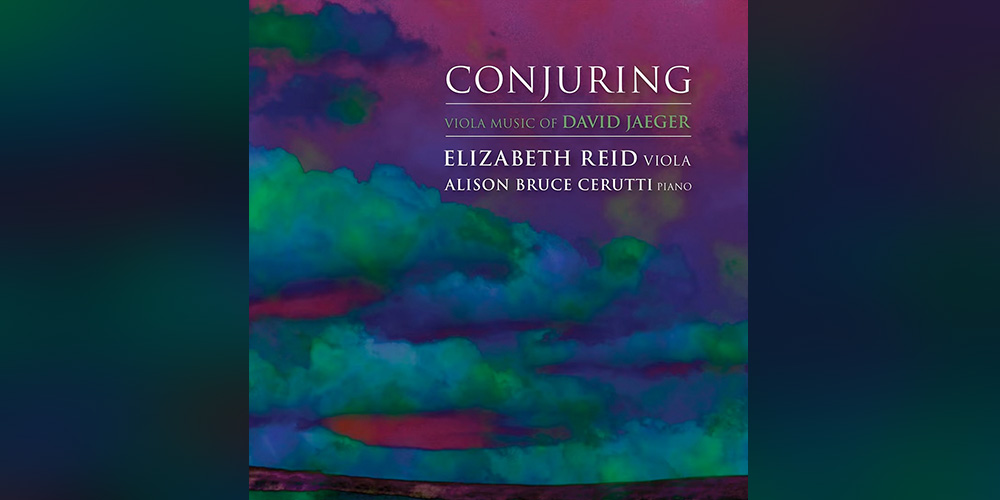Sticking with the violin family, but moving away from the fiddle tradition, the next disc features music for solo viola by longtime CBC producer and frequent contributor to The WholeNote, David Jaeger. In the spirit of full disclosure I will say that I have had a lengthy professional relationship with Jaeger over the years as the administrator of New Music Concerts but of course almost everyone in the contemporary music community could say the same. Since retiring from the CBC, Jaeger, when not busy producing independent recordings for some of Toronto’s finest musicians, has expanded his activities as a composer and there has been a wealth of new work in recent years. Conjuring: Viola Music of David Jaeger (Redshift Records TK524 redshiftrecords. org) spans four decades. The soloist is Hamilton native, now Vermont resident, Elizabeth Reid who rises to the various challenges the works present with aplomb and conviction. She is accompanied by Alison Bruce Cerutti in Sonata, Tristan and Isolde, written in 1992 in honour of the 70th birthday of the composer’s mother (and her dog and cat), and Sonata No.1 for viola and piano written just four years ago. The Six Miniatures for unaccompanied viola are based on verses by Scottish poet David Cameron, the texts of which are included in the booklet, with the violist “in effect, playing the role of the reciter.” As befitting a founding member of the Canadian Electronic Ensemble, Jaeger’s three remaining works involve the use of technology in one form or another. Constable and the Spirit of the Clouds is an adaption of a work originally for solo cello. At the suggestion of Reid, Jaeger reworked the cello score for viola and added an electronic track “composed using a similar process,” i.e., examples oflinear variation observed in the work of English Romantic artist John Constable. The result is intriguing. The final two works were written for the internationally renowned Israeli violist Rivka Golani who made her home in Toronto for some years. Favour for viola and live digital delay controlled by the performer was composed in 1980. Sarabande was composed to address the issue of the complicated set-up required for the live electronics aspect of Favour, here replaced by a single play back track for the performer to play against. Favour was originally released on Golani’s ViolaNouveau(Centrediscs CMCCD 0883), still available from the Canadian Music Centre, providing a rare oppor tunity to compare two interpretations of a contemporary Canadian piece. By pairing these two works we are presented with Jaeger’s “second take” on the same material and also a second performer’s take on them both. It’s great to see a new generation of musicians taking up the mantle and championing existing works along with the new.
